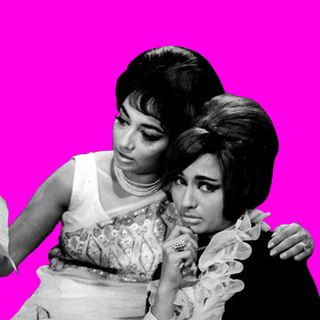
How Urban Indians Are Finding Their Passion for Cooking — Against Gender, Class Barriers
Cooking is often a gender and class-determined role, leaving many without the opportunity to cook for passion and joy.

A growing number of urban Indians identify cooking as something they are deeply passionate about. “For me, the monotony of the activity really helps me get into the mode of thinking and relaxing,” says Delhi-based Kameng Kundiliya, highlighting the therapeutic and meditative values that cooking as an activity holds for some people.
However, for a vast majority of others, this is not the case. “Cooking is traumatic for me,” says Guwahati-based feminist activist Ananya Chakraborty. Chakraborty had to enter the kitchen at a very young age, during a medical emergency in her family. Since then, she has always associated crisis with the activity.
“If I have to cook, it means something is wrong around me. The last time I was in the kitchen cooking regularly, the world was hit by a pandemic.”
Chakraborty’s feelings are reflective of a country where cooking is largely done for survival and is strictly segregated along gender and class lines. The idea of enjoying it as a passion is not only unimaginable but also often gatekept for certain people. But by disrupting the binary between passionate cooking and cooking for survival, many who have been excluded from finding enjoyment are beginning to reclaim it.
For food writer Shirin Mehrotra, despite her undying love for the kitchen, cooking became something she despised once it was expected of her during her marriage. “Cooking became a chore because … I was someone’s wife and someone’s daughter-in-law. And I refused to do it.”
Related on The Swaddle:
How Instant Noodles Became the Gateway to Cooking for Many Young Indians
Mehrotra chose to reclaim cooking as her “thing” once her marriage ended. “Cooking gives me comfort, it helps me calm down, it helps me center myself. When I am feeling anxious I do one of two things – I either take a nap or I cook.” What helped Mehrotra rediscover her love for cooking was articulating clearly that she wouldn’t cook simply because it was something expected of her. She also chose to prioritize cooking what she wants.
“Women working in the kitchen in our country are always asked to focus on what others want to eat. It’s never about what they want to eat. I have probably seen this unfold in my own house also, which is why cooking for myself, and cooking what I want to eat, become very central to me.”
Uneven expectations around gender and labor preclude many people like Mehrotra from even thinking about cooking with passion. Prerna Kundalia, an aspiring writer who hails from a Calcutta-based Rajasthani family, relates how she often felt conflicted about finding solace in cooking due to how it was a thing expected of her and other family members in the household. “As a kid, when I started to grow a little older, I began using the kitchen as an escape from the family. [B]ut then the family began talking about how it’s a good thing that I am finding my space in the kitchen, that it would be good for the family and for my future prospects. I found it regressive, so eventually, at some point, I stopped wanting to cook at home.”
Related on The Swaddle:
The Feminist Revolution Can Happen in the Kitchen
In such cases, distancing oneself from environments and cultures where cooking is a gendered expectation can play a central role. “When I moved to Delhi by myself, for my studies, was when I finally resumed cooking. I realized that it was also about survival. And then, slowly, it became a meditative process. It became something I love,” says Prerna.
“The kitchen became the one place where I could think, where I could use intuition.”
However, who gets to reclaim cooking for themselves is also laden with structural barriers. This is exemplified by the story of Dinesh Kumar*, the operator of a cart selling rolls in a busy street adjacent to the University of Delhi. Kumar, who has been at his job for almost two decades, is remarkably mechanical while at work, silently going about rolling out rotis, toasting them on oil, and then filling them up with eggs, vegetables, and chicken. “I almost feel like I am a machine while operating the cart.”
Because cooking is connected to sustenance and labor for Kumar, it’s difficult for him to imagine enjoying it. However, during visits to his native village in Haryana, he loves cooking for his extended family and tries to find some new dishes on YouTube every time. Those times, he truly enjoys cooking, perhaps because he can finally not only make what he wants but also do so for people he wants to do it for.
Although Kumar faces a magnitude of class and economical barriers more than people like Mehrotra or Prerna, all their experiences finding their way back to cooking for passion share one thing in common: Being allowed the space to refuse cooking. In the end, then, having the agency to set the terms of cooking and whom it’s for is vital for the passion to exist.
Amlan Sarkar is a staff writer at TheSwaddle. He writes about the intersection between pop culture and politics. You can reach him on Instagram @amlansarkr.
Related


The Buzz Cut: Nepo Babies Advocate for Themselves Amid Marginalization by Magazine
